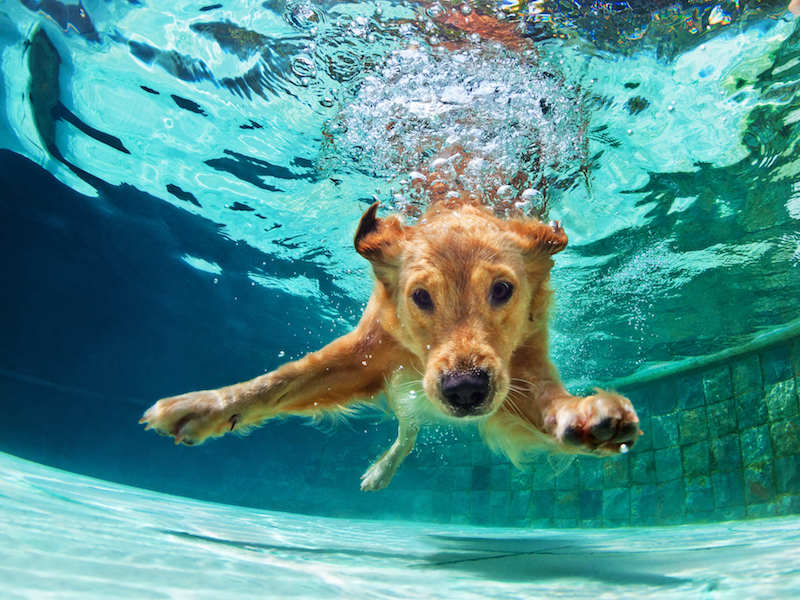
There are many factors which can affect the electrical circuitry of your hearing aids. Hearing aids seem to self-destruct under severe moisture conditions. Even if you already know that and take care to protect your investment from the shower, pool, or a good face washing, chances are you are missing the most common cause of water damage in hearing aids: humidity.
Invisible moisture has the greatest chance of causing irreparable damage. It’s important to educate yourself about why humidity damages hearing aids.
Let’s Talk About Humidity
Despite the fact that the word humidity is very common, what does it really mean? PBS describes humidity as water molecules in the air. When displayed as a percentage, for example, the relative humidity is 40 percent today, it refers to the amount of water vapor in the air compared to what air could hold. When you can feel wetness in the air, that means the relative humidity is high.
Human beings are very sensitive to humidity because sweat is the most efficient way to cool the body. When humidity levels are too high our sweat will not evaporate as fast. Moisture and electronics don’t mix well and that includes hearing aids.
Understand Humidities Effect on Hearing Aids
Oddly enough, electronics are not only sensitive to high humidity but low levels as well. When it’s too moist, the intricate electronics will collect condensation. When it’s too dry things become more brittle.
Hearing aids rely heavily on internal electronics to work. An advanced signal processing chip controls noise levels in a newer hearing aid. It’s what is behind elegant features like:
- Noise reduction
- Anti-feedback
- Targeted listening programs
- Digital sound streaming
Moisture can accumulate within the hearing aid when humidity is high and ruin that component. It can corrode elements inside the casing and destroy batteries as well. It’s the same as throwing your hearing aid in a bathtub of water.
How to Get A Handle On Humidity
Water resistant models are currently on the market. Having this feature doesn’t mean you can go swimming with your hearing aids in your ear, but it does provide some protection against humidity and other weather-related concerns like getting caught in an unforeseen rainstorm or even sweat when you work out.
When it’s very humid try to reduce indoor water vapor by utilizing a dehumidifier. It’s an investment that will benefit you and your family in many ways and protect other electronic devices like that expensive TV you got for Christmas. Dust mites, mildew, and mold thrive in moist environments so a dehumidifier will improve the quality of breathing as well. Although a house or room dehumidifier will help protect your hearing aids, it’s not enough. There are a few other things you can and should do.
Consider buying a dehumidifier designed especially for hearing aids. There is one out there for every budget. Drying kits rely on silica gel crystals to protect the electronics. You put the device in the dehumidifier for a couple of hours to eliminate moisture. There are also storage containers that dry hearing aids out each night as you sleep. If it is very humid and you have no other way, uncooked rice can reduce moisture.
Don’t forget to leave the battery door open when you store your device. By pulling that door open before you put the hearing aid down, you expose the batteries and other elements to the air, allowing any condensation built up to evaporate naturally. Do this all year round, not just in the summer months.
Always store your hearing aids in a cool, dry place. On the table in the sun, in the glove compartment, or in a hot room are examples of where not to store your hearing aids.
Other Moisture Concerns
Air vapor is not the only moisture that can damage hearing aids. Don’t forget to think about other types of wetness like:
- Make sure all lotion or sunscreen is fully absorbed before touching your hearing aids or putting them in your ears.
- Leave your hearing aids in a safe place before you go swimming.
- Wear a sweatband when exercising. If you are wearing your hearing aid then it’s a good idea in general. Later that sweat will cause problems.
- Check surfaces before you put your hearing aid down. A glass or coffee cup can leave moisture behind.
Treat your hearing like the valuable asset that it is. Consider how moisture and humidity can impact them and take steps to prevent water damage. If your hearing aid already has water damage make an appointment for service with a hearing aid specialist.